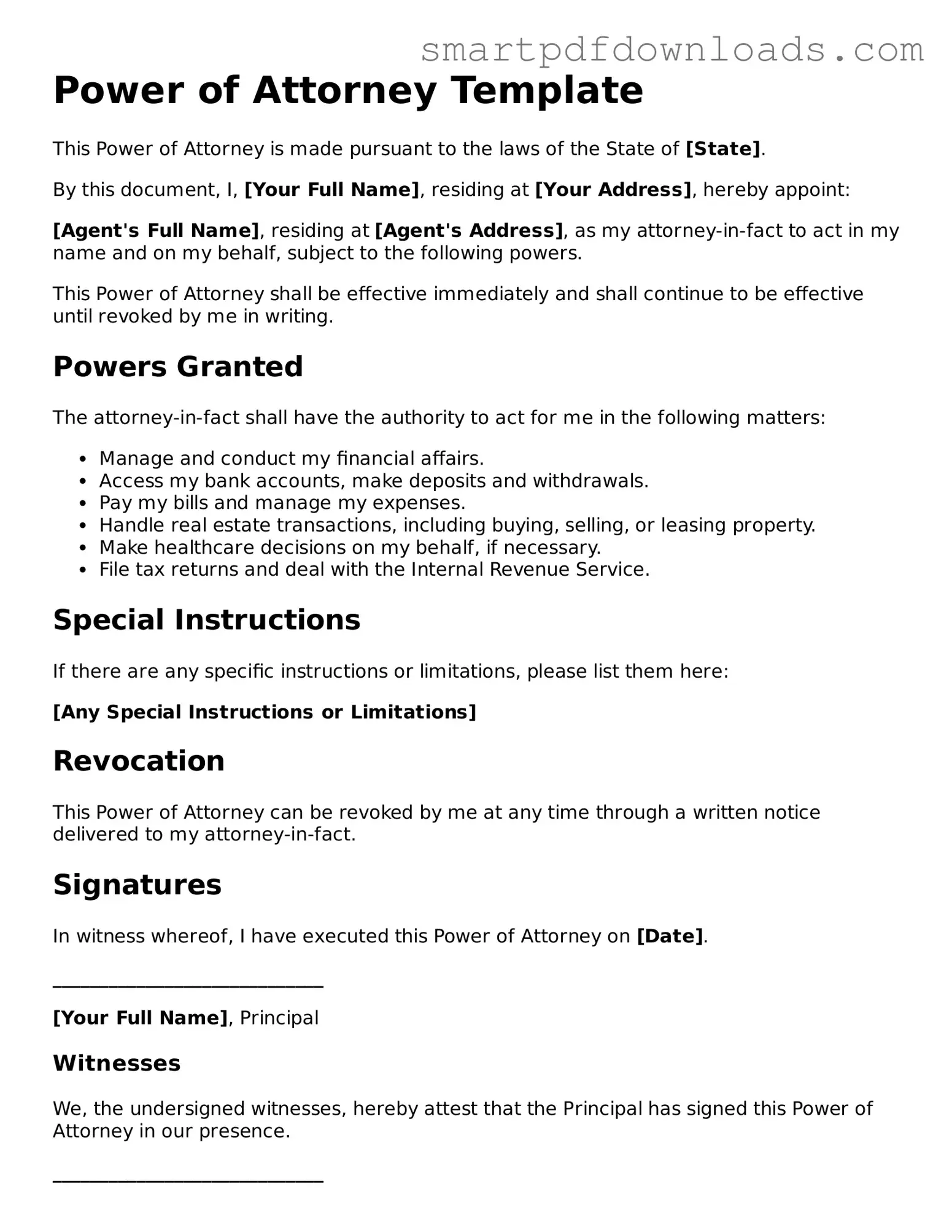Free Power of Attorney Form
A Power of Attorney form is a legal document that allows one person to act on behalf of another in various matters, such as financial or medical decisions. This form grants authority to a designated individual, often referred to as an agent or attorney-in-fact, to make choices that can significantly impact the principal's life. Understanding the implications and uses of this powerful tool is essential for anyone considering its creation.
Edit Power of Attorney Online

Free Power of Attorney Form
Edit Power of Attorney Online

Edit Power of Attorney Online
or
⇓ PDF File
Finish the form and move on
Edit Power of Attorney online fast, without printing.